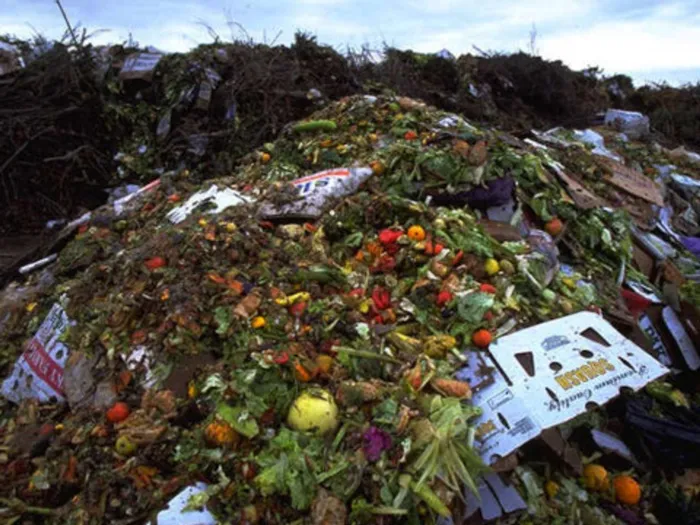
Environment Writer
SOUTH Africans throw away more than nine million tons of food every year, according to the Institute of Waste Management of Southern Africa.
With Christmas, New Year and the holiday season upon us, traditionally a time for excessive eating and drinking, the amount of food waste is likely to increase.
Suzan Oelofse, president of the institute, has appealed to consumers to be sensible about how much food they buy this season to ensure they do not buy more than they need and end up throwing food away.
Not only is this a waste of nutrients which could feed the hungry, it is also a waste of a substantial amount of energy and water that goes into the production, transportation and packaging of the food.
Oelofse said most discarded food ends up on municipal rubbish dumps.
“This is extremely harmful to the environment as it produces methane gas, a major contributor to greenhouse gas emissions,” Oelofse said.
Methane is about 20 times more potent at trapping heat than carbon, although its lifespan in the atmosphere is shorter.
Oelofse said the first step to cutting food waste was for all households and individual consumers to keep a realistic grocery list of what they need – and then sticking to it, without overbuying or impulse buying.
When consumers do end up with too much food, still fit for consumption, they should donate it to those who needed it. If it has already been spoiled, the food should far rather be turned into compost than thrown in the dustbin.
“Composting organic waste is a green option – and wonderful for your garden – as it closes the loop of nutrients in the environmental system.”
Environmental scientist Stuart Gower-Jackson said people should make an effort to divert waste from municipal rubbish dumps.
“There are numerous benefits of composting organic waste as it produces mulch, soil amendments, organic fertilisers and products that can help save costs by substituting compost for chemical fertilisers,” he said.
As well as food, garden waste such as grass, leaves and branches can be made in to compost. It normally takes a year for a compost heap to decompose fully.
For information, visit www.iwmsa.co.za